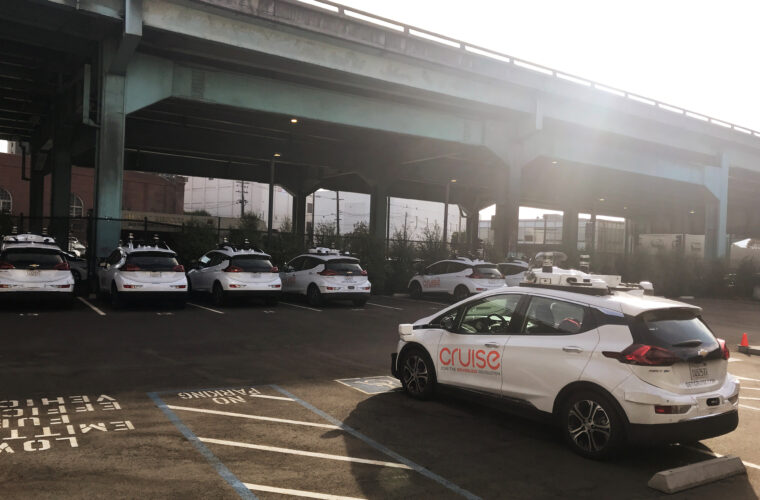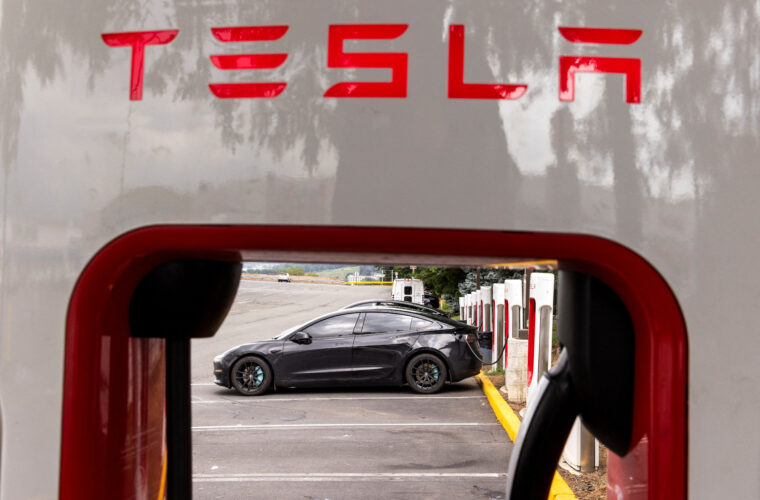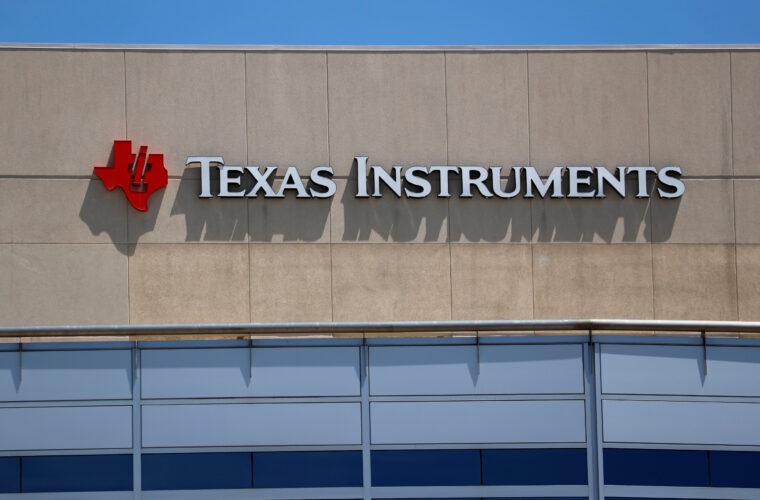With the breakthrough of vaccines available to help lift Covid’s hold on the world one UK based start-up are hoping to play their part in getting people out and about, and back to life as they know it.
Thanks to their innovative VCode the VST Enterprises are developing many applications in which it can be used to help society fight back against the restrictions Covid has laid upon us.
The VCode, created by Louis-James Davis CEO of VST Enterprises, is a mega update, in terms of security, to the barcode or QR code. VSTE claim that it is un-hackable – which probably sounds like I’m throwing down the gauntlet to those reading this.

“We use a closed loop technology with end to end encryption,” Gerard Franklin, Head Of PR Communications & External Relations at VST Enterprises explains about the VCode. “There are 2.2 quintillion collision free codes that work in that matrix. If you effectively think of it being bit like a massive jigsaw puzzle that is constantly rotating the pieces around them, no one set of codes are going to replicate and do the same.”
“There’s a whole myriad of uses,” he continues, “across everything from things like government identity, to counterfeiting, to banking logistics and supply chain – a whole range of services and technologies that we can use it in on a daily basis.”
VSTE have teamed up with technology disruptors Luna Venture Partners to become the technology partner to Sale Sharks rugby team in a new three-year deal.
It’s currently being on the kit of the players for an added fan experience. The VCode is visible between the logo on the front of the players shirts and can be scanned from a distance of up to 100 metres at any angle up to 170-degree arc – it can also be scanned by those watching on screens at home.
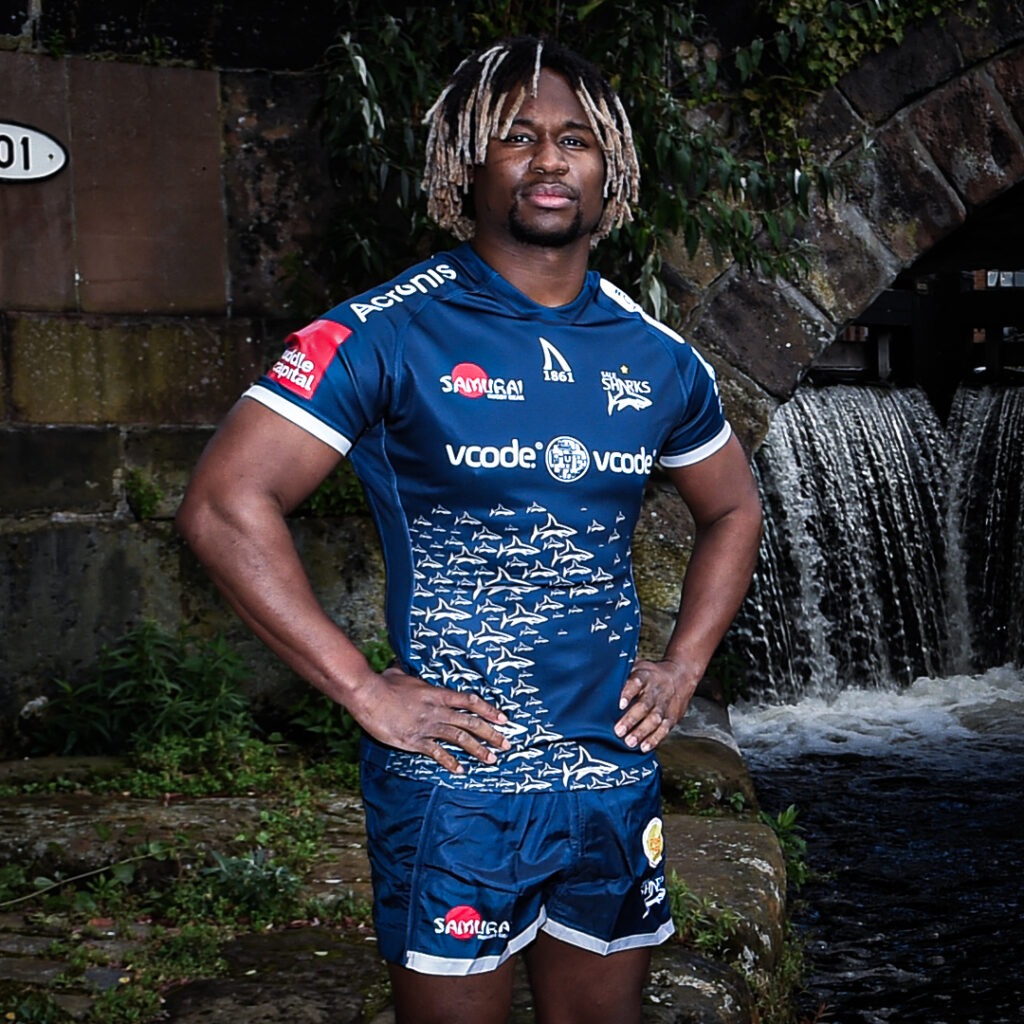
In this instance it gives fans the opportunity to access player information, ticket information and special offers.
During the pandemic Davis has been looking for a way his technology can help in the fight against Covid and has focused on the free movement of people, for example trying to get crowds back into sports stadiums.
“So obviously, we knew that the testing regimes would come, and eventually there would be a vaccination program so what we decided to develop was a secure digital health passport,” explains Franklin.
“We created the V-Health Passport, a unique piece of technology that could sit on an app and could effectively be used to authenticate who you are and confirm your Covid test status. The platform is test agnostic – it’s compatible with all forms of Covid testing.”
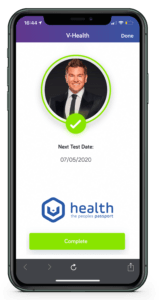
The V-Health platform can now also hold vaccination records of all the major vaccination manufacturers which will be crucial in a person validating they have been vaccinated, the vaccine type, batch, dosage and date. It’s the only health wallet and cross border platform in the world that is multi-functional and GDPR compliant. Holders choose what they want to share and with whom they want to interact or authorise.
“With V-Health Passport we wanted to provide functionality and greater mobility to allow citizens to return to work, be fit to fly or return to the sports stadiums,” says Davis. “But at the heart of the technology was the ability to protect and respect data privacy of the individual.”

